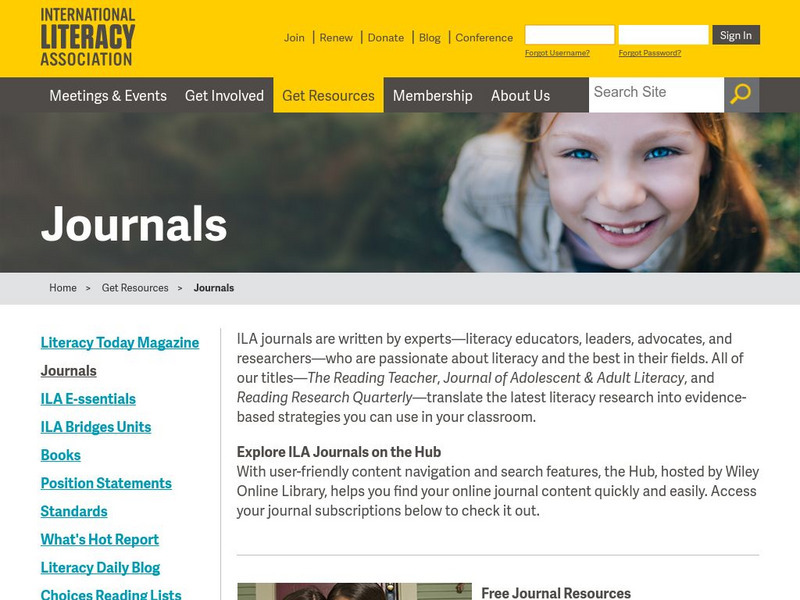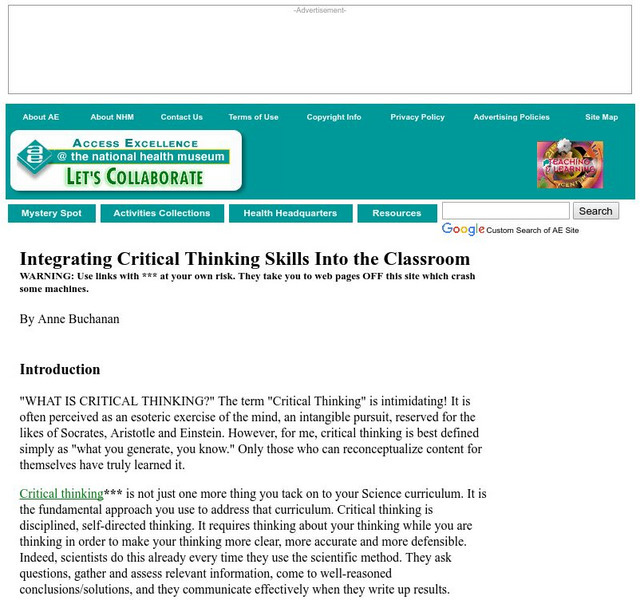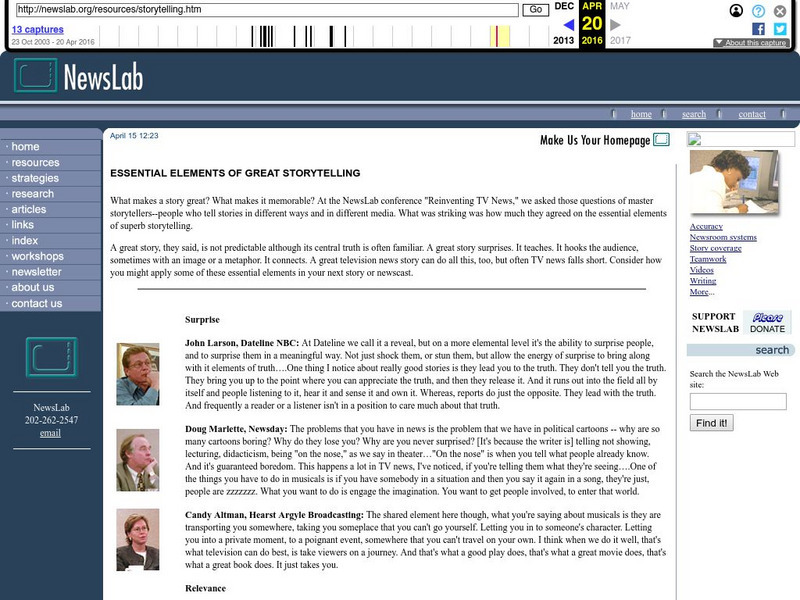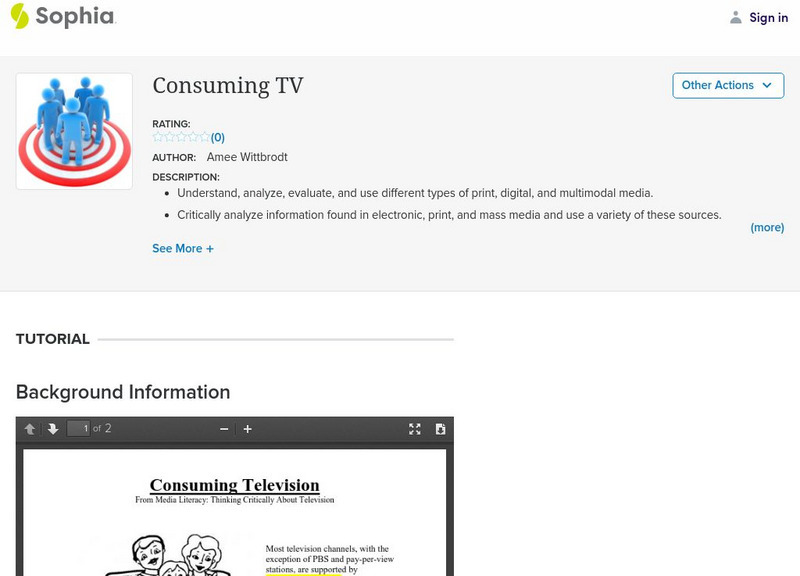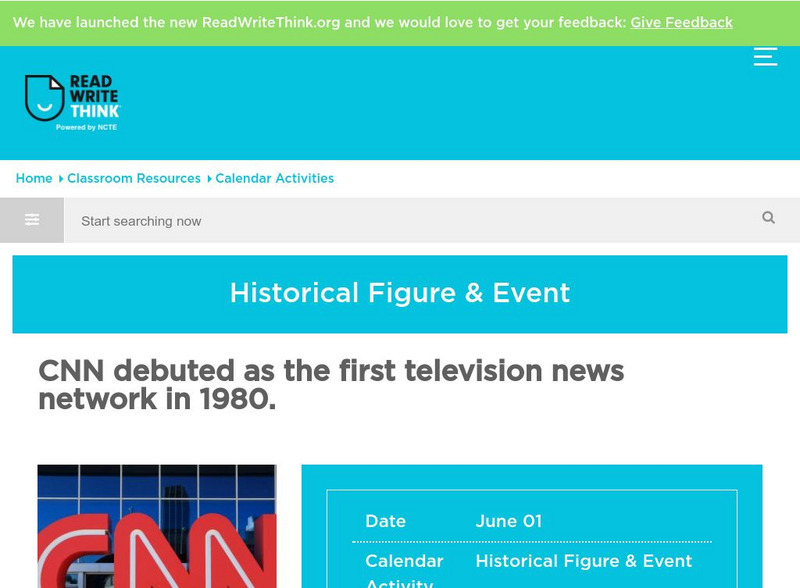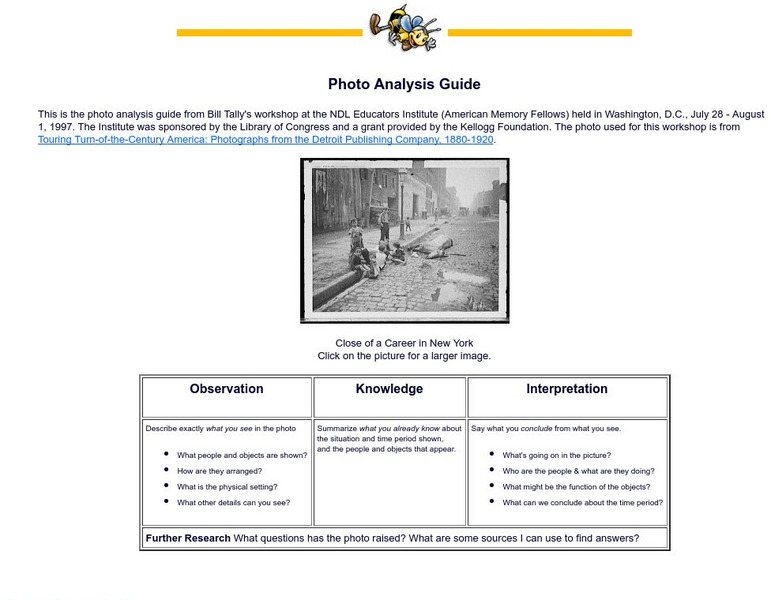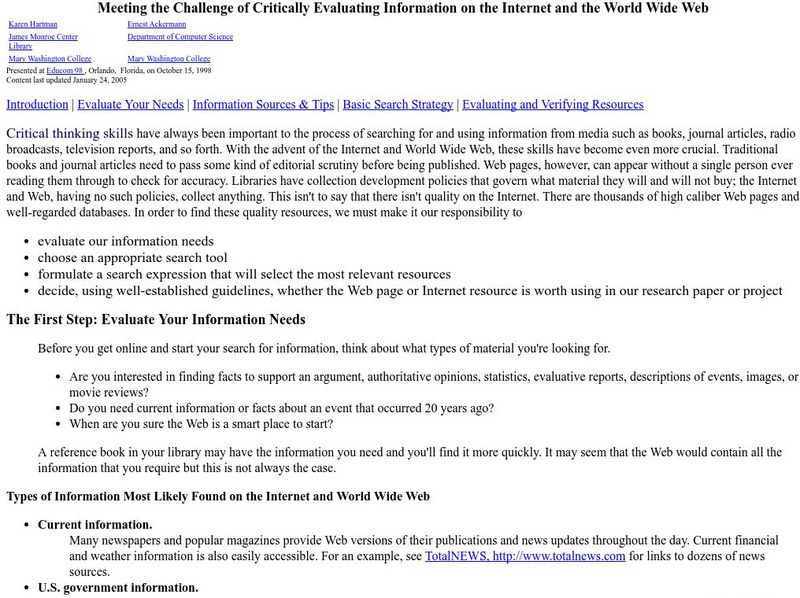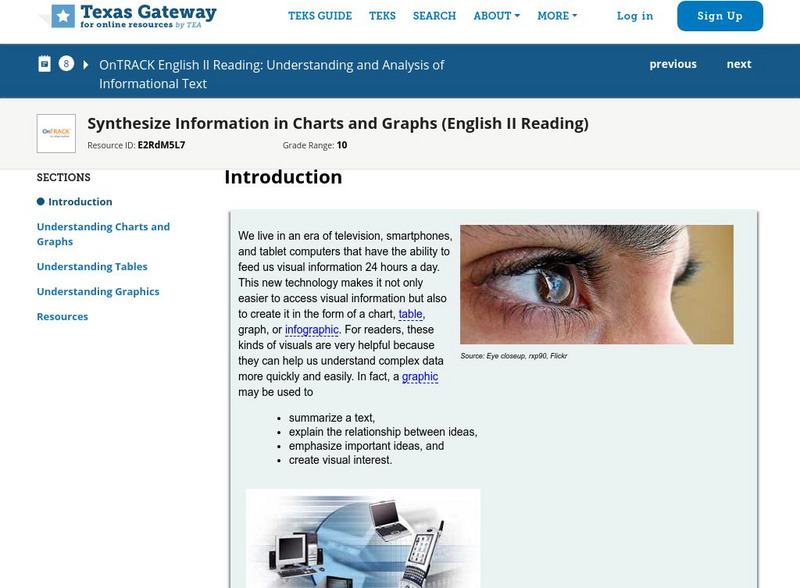Other
Aejmc: Association for Education Journalism & Mass Communication
With memberships in thirty different countries, the Association for Education in Journalism and Mass Communication site boasts a newsletter-style design. A well defined index and speedy search setup make for easy navigation. Educators,...
PBS
Pbs Online News Hour Extra: Watching the Clock: Building Media Savvy Students
A lesson that leads students to an understanding of the time constraints on broadcast news by applying data-collecting and data-display skills. Students will learn to identify the main difference between publicly funded news programs...
International Reading Association
Reading Online: "A Horizon of Possibilities": Multiethnic Literature Instruction
Research and ideas to improve understanding of multiethnic literature as a means of raising cultural awareness and acceptance.
Other
Beginning Reporting: The Art of News Interviewing Part 1
Veteran reporter Jim Hall offers ten suggestions for getting the most from an interview with a news source.
Other
Beginning Reporting: Working With News Sources
Maintaining the right balance of familiarity and distance with your sources is key to good reporting. Journalist Jim Hall offers a few more tips on the human side of dealing with news sources.
National Health Museum
Access Excellence: Integrating Critical Thinking Skills
This site from Access Excellence explores how, as an educator, you can incorporate critical thinking skills into the classroom. Content focuses on how to cover content so that students can grasp information, engage with the teacher, read...
Other
News Lab: Elements of Great Storytelling
This is a great site for broadcast journalists; it focuses on the elements that make a story great. You can find tips on writing from some of the top people in the industry.
Other
Youth Learn: The Key to Engaging Students in Learning: Asking Good Questions
Explanation of several types of questions, and suggestions for helping students use good questioning techniques in inquiry-based learning. SL.9-10.1c Active Partic
Leaf Group
E How: How to Write a Talking Points Paper
This article by Byron Walsh focuses on writing a talking points paper for a public speaker which consists of researched, accurate information provided in bulleted lists with follow up sentences on specific topics.
Other
The Awesome Library: Math References
The Awesome Library lets you pick your subject and then gives you additional sites and information on your topic. Need help in Math? Pick your age group and subject and you can do worksheets and examples on the computer.
Other
The International Press Institute
The International Press Institute describes itself as "a global network of journalists, editors and media executives, dedicated to freedom of the press and improving the standards and practises of journalism." To that end, this site...
Other
Pbs: Media Shift: Your Guide to the Digital Media Revolution
This website is a guide to the way the new media-blogs, RSS, podcasting, citizen journalism, wikis, news aggregators, and video repositories-are changing the way we take in the news of our world. Click on the underlined words to...
Community Learning Network
Community Learning Network: Journalism Theme Page
This site from the Community Learning Network has great information on the art of journalism. The site is outlined by links for easy navigation and contains a rather exhaustive section on general resources. A great site to check out on...
Sophia Learning
Sophia: Consuming Tv
In this tutorial, students will read about the viewing of television in American households through the reading of a passage and the viewing of a video segment. Students will then engage in answering basic comprehension questions,...
Sophia Learning
Sophia: Identifying the Question Type
In this slideshow tutorial, students will review the different types of reading comprehension questions. Examples of different question stems are provided.
Sophia Learning
Sophia: Note Taking: Word Selection
A screencast lesson [8:35] explaining how to determine which information is necessary and relevant when taking notes.
BBC
Bbc: Skillswise: Listening for Specifics
This Skillswise site focuses on listening for specifics. Included are a video about why learning how to do this, fact sheets and worksheets for instruction, quizzes on the information presented, and games to practice the skill. The...
Other
Society of Professional Journalists: Freedom of Info.
This resource is a great tool for journalists and non-journalists to obtain information from federal and local government sources. Access to this information can make or break a news story.
Other
Santa Rosa Library: How to Evaluate Information Resources
Tips and information about how to evaluate resources, both print and electronic. Includes information about source authority, purpose, objectivity, currency, completeness, and relevance. It includes a printable handout (top right)with...
ReadWriteThink
Read Write Think: Cnn Debuted as the First Television News Network in 1980
These lesson plans relate to the gathering and production of news and creating a visual timeline. There are links to other lesson plan ideas, as well as web links, and a brief bibliography. SL.11-12.2 Eval&Integrate sources
Cyberbee
Cyberbee: Photo Analysis Guide
This site is a guide to help students analyze visual media. Further research questions included.
21st Century Schools
21st Century Schools: Critical Viewing Skills and Media Literacy
Understand media literacy as it relates to a student's ability to analyze, evaluate, critique and produce multiple media messages. Information and links to inspire students, teachers and all those who work with young people regarding...
Other
Webliminal: Critically Evaluating Information on the Internet
This site gives excellent information on why it's important to evaluate the content of everything you find in cyberspace, and also tells you how to do so. It also contains information about using search engines effectively and how to...
Texas Education Agency
Texas Gateway: Synthesize Information in Charts and Graphs (English Ii Reading)
Synthesize information that you find in charts and graphs.



